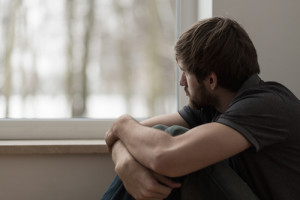11 Signs of Depression
How Do I Know If I Am Depressed?
Many people wonder if they may be depressed. Depression is a serious issue and the most prevalent mental health condition in the United States, affecting as many as 1 in 5 women and 1 in 9 men.
But, how do you know if what you are feeling is depression, as opposed to just feeling “down”?
Some common signs of depression include:
- Subjective sadness or depressed mood most of the day
- Loss of energy and feelings of fatigue, both physical and mental
- Loss of the ability to experience pleasure, even in things that you used to enjoy
- Feeling intense or inappropriate guilt, blaming yourself for things that are out of your control
- Feeling hopeless about your life or your future; or feeling that you are worthless
- Suicidal thoughts or thoughts of death; feeling like you just don’t want to go on
- Changes in sleep (sleeping too much, disturbed sleep, or inability to sleep)
- Decreased appetite and weight loss, or alternately, increased appetite and weight gain
- Problems with concentration and inability to get tasks done
- Increased anger and irritability is a less common symptom, but is often associated with depression
- Attempts to “self-medicate” with alcohol, drugs, sex or food are related to depression, although not explicitly symptoms of the diagnosis
You don’t need to have all of these symptoms to be diagnosed with depression. And, of course, reviewing a list like this can’t confirm a diagnosis either. Please consult a mental health professional to review your situation if you are bothered by some of the symptoms listed above, especially if you have been experiencing suicidal thoughts. The length of your depressed mood can also indicate that you may have clinical depression, as opposed to just feeling “down.” Major Depression symptoms usually last for at least two weeks. Normal ups and downs last for a day or two, and then you find that your mood improves with time. If these signs of depression linger, or you are not sure what is triggering them, consult with a professional. Untreated depression can have devastating effects, but depression can be very effectively treated. Don’t hesitate to reach out for help, you don’t have to continue to suffer with depression.
How Can I Begin to Help Myself?
If you feel you may have clinical depression, it is important to get help from a professional. Don’t continue to suffer alone. In addition to seeking professional help, increasing your healthy self-care routines can make you less vulnerable to becoming depressed, and can even improve the symptoms that you are experiencing. Some of the ideas that have worked for my clients in the past include:
- Daily moderate exercise. Depression results in the urge to stay still, get moving to counteract that urge.
- Improved healthy sleep habits. Limit caffeine, develop a relaxing routine to shut down worries at night, resist sleeping during that day so that you will be better able to sleep at night.
- Daily exposure to sunlight. Some depression is seasonal, getting worse in winter months with less direct sunlight, exposure to some sun each day can boost your mood.
- Decrease isolation. Depression is associated with the urge to isolate due to low energy and negative thinking. Push yourself to socialize even when you don’t feel like it, you will feel a little better afterward.
- Talking about your feelings in a safe relationship, with someone you can trust. There can be so much stigma in our culture around painful emotions. Due to shame, you can tend to isolate yourself and make your symptoms worse. Risk opening up with a friend about how you have been feeling, they have probably had a similar experience and it can feel so good to know that you are not alone. (Remember depression is very common, even if people don’t always talk about it.) Or, if you don’t feel you can open up to a family member or friend, tell your doctor what you are experiencing or call a therapist.
- Make small goals that you can achieve each day (such as calling a friend, getting to work on time, trying yoga for the first time) and then give yourself credit for accomplishing them. Negative thinking that is associated with depression can sometimes sap your ability to see the progress that you are making. Write down a list of the small goals you have accomplished each day, don’t minimize the hard work you are doing to make things better.
- Focus on gratitude and finding purpose in your life. Many of my clients find that contributing to helping others is a very effective way to boost mood and increase energy. It is so gratifying to know that your efforts are needed and appreciated. Can you help a friend move? Volunteer at your church or with a political cause? Check in on an elderly neighbor? Getting an outside perspective can help us appreciate the talents we have to offer and increase hope through awareness that we can make a positive difference even in little ways.
I hope that this post helps you determine if what you are experiencing may be signs of depression and gives you some ideas about things you can do to decrease your vulnerability to depression. If you would like to talk further about your situation, please give me a call at 404-668-9893.
